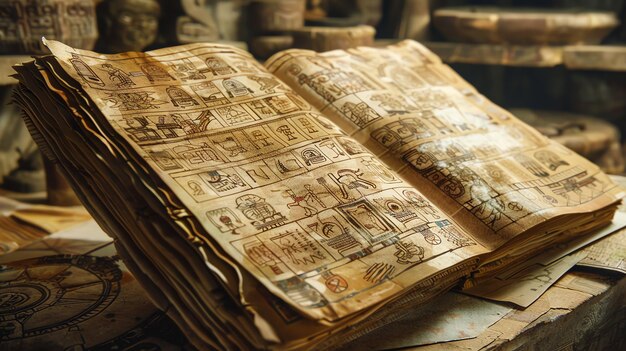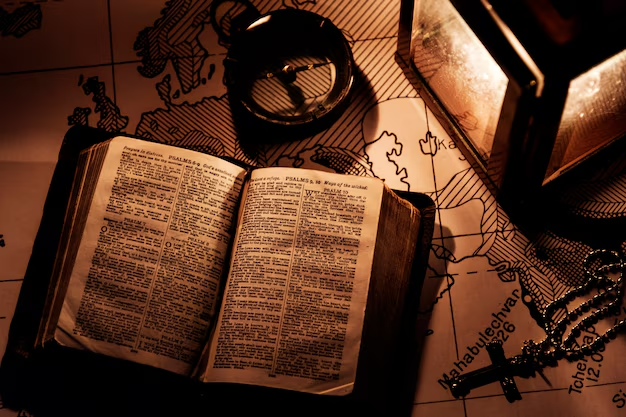
History is not just a collection of dates, events, and people; it is the very essence of who we are, where we come from, and how the present world was shaped. It provides context to the world we live in today, offering valuable lessons and insights into the human experience. From the ancient civilizations that built the foundations of society to the pivotal moments that defined nations, understanding history allows us to better navigate our future.
The Importance of History
History serves as a mirror to our past, reflecting both the triumphs and failures of humanity. By studying it, we gain perspective on the progress we’ve made as well as the mistakes we must avoid in the future. It also enables us to understand the cultural, political, and social systems that continue to influence the modern world.
1. A Reflection of Human Nature
At its core, history is the story of people—their desires, ambitions, fears, and struggles. It tells us about how civilizations rose and fell, about wars fought, treaties signed, and revolutions sparked. By studying history, we learn about the human condition in different times and places. The lessons drawn from history help us understand why societies make certain choices, how conflicts arise, and what drives people to innovate or destroy.
2. The Path to Progress
The progress we enjoy today—whether in technology, medicine, politics, or culture—is the result of centuries of human effort and learning. History highlights the important steps that led to advancements, offering a roadmap for how societies evolve. From the development of writing systems in ancient Mesopotamia to the Scientific Revolution, each historical milestone contributed to the progress we now take for granted. Understanding this path can inspire new generations to continue pushing the boundaries of innovation and knowledge.
3. Cultural Preservation
History plays a crucial role in preserving culture. It allows us to learn about traditions, beliefs, art, literature, and the achievements of our ancestors. By understanding cultural history, we connect to our roots and gain a deeper appreciation of the diversity that makes the world so rich. Festivals, customs, and even languages are shaped by the historical context in which they emerged, making them an essential part of understanding humanity’s shared heritage.
The Power of History: Key Events that Shaped the World
History is made up of countless events, each contributing in its own way to the world we live in today. Some of the most significant moments in history have changed the course of nations, cultures, and even humanity as a whole.
1. The Rise and Fall of Ancient Civilizations
From the Egyptians and Mesopotamians to the Romans and Greeks, ancient civilizations laid the foundation for much of the modern world. The creation of writing, the development of trade networks, and the invention of various technologies during these times changed the trajectory of human history. The fall of these great empires, however, also offers valuable lessons about power, governance, and societal decline. The collapse of the Roman Empire, for instance, left a lasting impact on Europe and the structure of its future societies.
2. The Age of Exploration
The Age of Exploration, spanning from the 15th to the 17th century, changed the course of history by connecting previously isolated parts of the world. Explorers like Christopher Columbus, Vasco da Gama, and Ferdinand Magellan opened up new trade routes and brought cultures into contact in ways never before seen. While this era led to the exchange of ideas, goods, and technologies, it also resulted in the colonization of many regions and the exploitation of indigenous peoples—a stark reminder of the complex and often harmful consequences of exploration.
3. The Industrial Revolution
The Industrial Revolution, which began in the late 18th century, marked a turning point in human history. It was the birth of modern industrial society, with new machinery, steam power, and mass production transforming economies and ways of life. It brought about urbanization, changes in labor, and advancements in technology. While it led to greater efficiency and wealth in many countries, it also created significant social and environmental challenges, some of which continue to be felt today.
4. World Wars and Their Aftermath
The two World Wars of the 20th century reshaped the global landscape. These catastrophic events not only resulted in immense loss of life but also led to the formation of new political and economic structures, including the United Nations and NATO. The aftermath of the wars saw the rise of superpowers like the United States and the Soviet Union, setting the stage for the Cold War and shaping the geopolitical environment for much of the 20th century.
5. The Civil Rights Movements
The struggle for equality and justice has been a recurring theme throughout history. The civil rights movements in the United States, the fight for independence in colonial nations, and the global push for gender equality all highlight the enduring fight for human rights. Key moments, such as Martin Luther King Jr.’s “I Have a Dream” speech and the dismantling of apartheid in South Africa, show the power of individuals and groups in challenging oppression and fighting for a more just and equal world.
The Lessons We Can Learn from History
Studying history is not just about looking back; it is about using the past to shape a better future. There are several key lessons that history teaches us:
1. The Cyclical Nature of History
One of the most important lessons of history is the understanding that events often repeat themselves. Wars, revolutions, economic crises, and periods of peace have all cycled through human history. By studying these cycles, we can better predict and prepare for the challenges of the future, avoiding past mistakes while building on past successes.
2. The Importance of Innovation and Adaptation
Throughout history, human progress has been driven by innovation—whether in the form of technological breakthroughs, social reforms, or new economic models. History shows us that the ability to adapt to changing circumstances is crucial for survival. Societies that resisted change often faced decline, while those that embraced innovation paved the way for advancement.
3. Understanding the Value of Empathy
History teaches us that empathy and understanding are key to peace and progress. By learning about the struggles and triumphs of others, we can develop a greater appreciation for diversity and cultivate a sense of global solidarity. Understanding the perspectives of different cultures, nations, and peoples helps to build bridges and reduce conflict.
Conclusion
History is much more than just the study of the past; it is a powerful tool that can shape our present and future. By examining historical events, we gain insights into the complexities of human nature, the evolution of societies, and the forces that drive change. Whether through the rise and fall of civilizations or the ongoing struggle for equality, history provides valuable lessons that guide us as we move forward. Understanding the power of history is essential not only for appreciating our past but for building a better future for generations to come.



